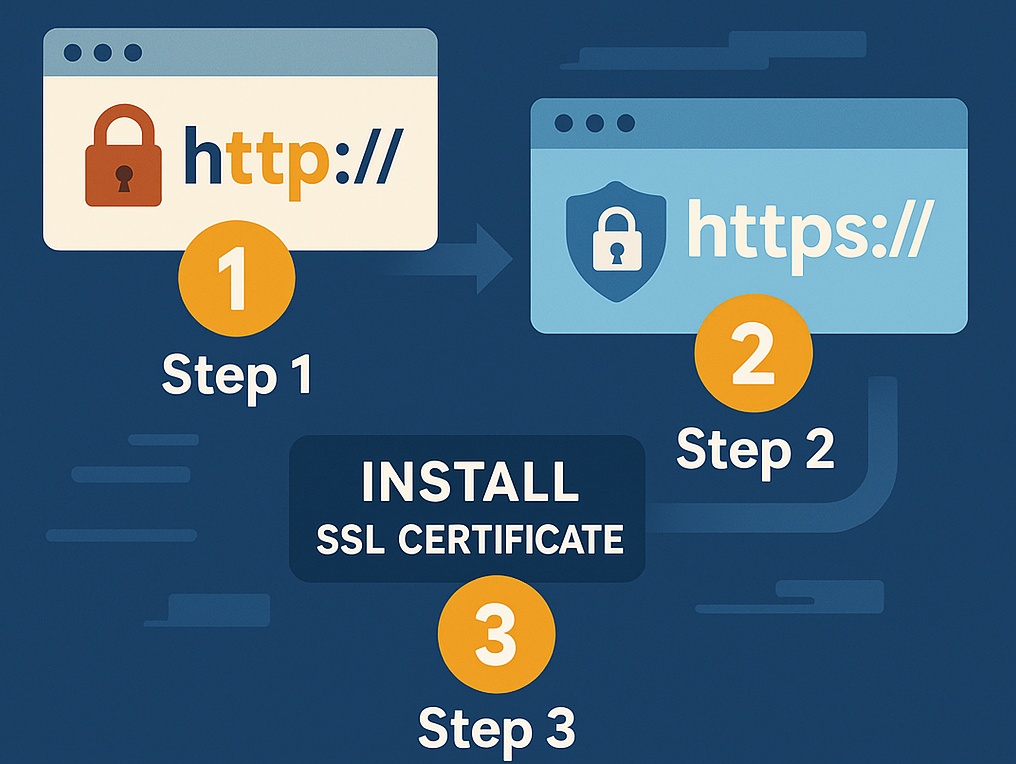Securing your website with an SSL certificate is essential for building trust, improving search rankings, and protecting data. In this guide, you’ll learn how to install an SSL certificate on Bluehost, ensuring your site is secure and fully optimized. We’ll walk you through each step and explain why Bluehost is a top choice for SSL integration, with tips for easy setup. Let’s get started!
Why an SSL Certificate Matters
When visitors see the “Secure” badge or HTTPS in their browser, it reinforces trust. An SSL certificate encrypts data, which is crucial for websites handling sensitive information like login details or payments. Even if you’re running a blog or informational site, Google prioritizes secure sites, giving you an edge in SEO rankings.
Step 1: Log In to Your Bluehost Dashboard
Getting started with an SSL certificate on Bluehost is straightforward. Simply log in to your Bluehost dashboard.
Pro Tip: Bluehost automatically provides a free SSL certificate for every new domain. This means, with a few clicks, your site can be secure without additional cost.
Step 2: Navigate to My Sites
From your dashboard, click on the “My Sites” tab. This section lists all your domains, allowing you to manage each one individually.
High-Converting Keywords:
- Bluehost SSL setup
- install SSL Bluehost
- free SSL Bluehost
- enable SSL on Bluehost
Did You Know? Bluehost’s easy SSL setup saves you time. Plus, their support team is available 24/7 if you need help activating SSL for your site.
Step 3: Access the Security Settings
In the “My Sites” section, find the domain you want to secure. Click “Manage Site,” then navigate to the “Security” tab. Here, you’ll see the option to enable SSL.
Pro Tip: For eCommerce sites, consider upgrading to a Premium SSL for enhanced security and higher trust among customers. Bluehost offers several affordable plans to enhance your site’s protection.
High-Converting Keywords:
- Bluehost Premium SSL
- SSL security with Bluehost
- Bluehost customer support SSL setup
- SSL upgrade Bluehost
Step 4: Activate Your SSL Certificate
In the security tab, you’ll see a toggle next to the SSL certificate. Switch it to “On.” It may take a few minutes, but Bluehost will handle the installation, and soon, your site will display that reassuring HTTPS.
Step 5: Confirm SSL Activation
Once activated, refresh your site. The padlock symbol next to your URL confirms successful installation. If it doesn’t appear, clear your browser cache or check with Bluehost customer support to resolve any lingering issues.
High-Converting Keywords:
- Bluehost secure HTTPS
- SSL activation Bluehost
- SSL setup Bluehost
- Bluehost customer support SSL
Frequently Asked Questions
Do I need to renew my SSL certificate on Bluehost?
Bluehost’s free SSL automatically renews, but for paid SSLs, you can set up annual renewals to maintain security.
What if I need extra help?
Bluehost’s 24/7 customer support is equipped to guide you through the SSL setup and help address any issues.
Why Choose Bluehost for SSL and Hosting?
Bluehost is trusted by millions for website security and seamless SSL integration. Whether you’re new to web hosting or an experienced webmaster, Bluehost’s easy-to-use dashboard, free SSL, and expert support make it the ideal choice.
If you’re ready to secure your site, click here to get started with Bluehost.
